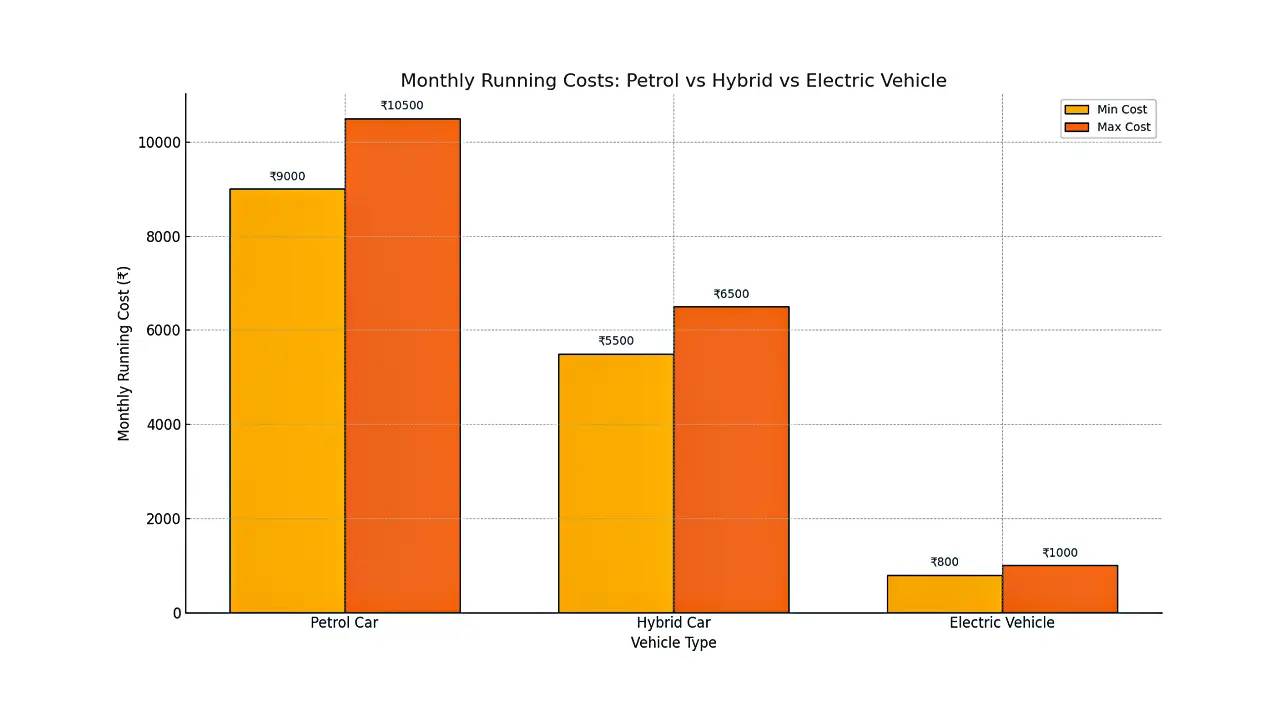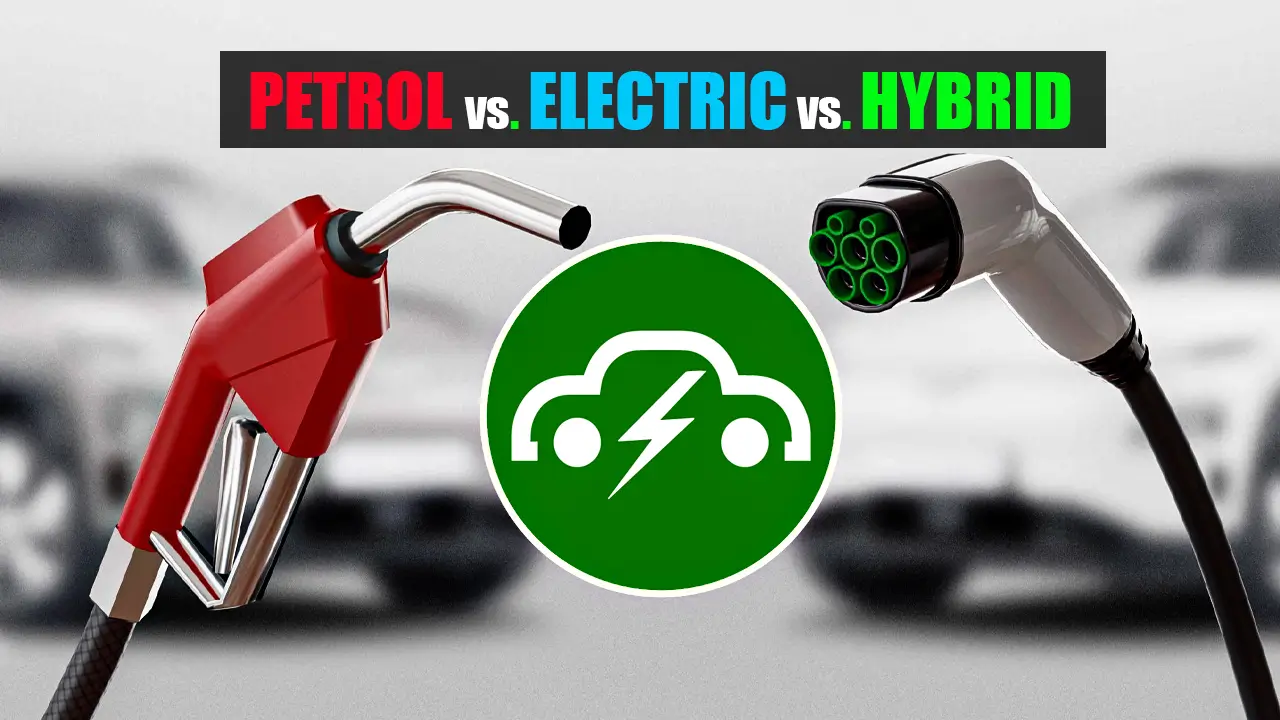The Indian automotive landscape is going through its most significant transformation ever. With the emergence of electric vehicles (EVs), the rise of hybrids, and the steady presence of petrol-powered cars, buyers now face a crucial decision: Hybrid vs Electric vs Petrol what’s the right choice for you in 2025?
Each option comes with its strengths, costs, and compromises. The real question isn’t which technology is “better” but which one fits your needs, lifestyle, and future expectations.
This detailed guide will help you make a confident, well-informed decision.
Why This Decision Matters More Than Ever
In 2025, your car is not just a mode of transportation. It reflects your priorities: fuel economy, eco-consciousness, cost-efficiency, or future-readiness.
Choosing the wrong type of car could result in increased maintenance costs, limited usability, or regrets down the line. That’s why understanding the pros and cons of hybrid, electric, and petrol cars is essential before signing that cheque or swiping that card.
Understanding Petrol Cars in Today’s Market
Petrol cars are the most familiar and still the most widely used in India and across the globe. Their simpler mechanics, low initial purchase cost, and widespread availability of fuel continue to attract new and budget-conscious buyers.
Petrol-powered cars are particularly well-suited for:
- Short-distance commutes
- Occasional weekend drives
- Areas with poor EV charging infrastructure
- Buyers who want low initial investment
However, petrol prices in India are unpredictable, and long-term running costs can become a concern especially if your daily drive exceeds 50 km.
Moreover, petrol engines emit more CO2 compared to hybrids and EVs, making them less eco-friendly.
Electric Vehicles (EVs)
Electric vehicles have come a long way in India, with more charging stations, better battery ranges, and increasing government incentives. EVs run on pure electric power and produce zero tailpipe emissions, making them the cleanest option environmentally.
If you have access to home charging or live in a metro city, EVs are incredibly practical. They’re also cheaper to run electricity is much more affordable than petrol, and EVs require less maintenance (no oil changes, fewer moving parts).
But range anxiety is still real for many drivers. EVs depend on charging infrastructure that isn’t yet consistent in smaller towns or highways. Also, most EVs come with higher upfront costs, though they do pay off over the years.
Also Read: Cars That Will Last Forever- The Most Long-Lasting Cars Ever Made
Hybrid Cars
Hybrid cars offer a mix of both worlds using a petrol engine along with an electric motor. They switch intelligently between power sources based on driving conditions. In slow traffic, you might run on electricity, while on highways use the petrol engine for sustained speed.
Hybrids are great for:
- Drivers with unpredictable city and highway usage
- People who want better mileage than a petrol car but don’t want EV charging hassles
- Long-term ownership with better fuel efficiency
- Environmentally conscious buyers who aren’t ready for a full EV
The only downside? Hybrids are priced higher than petrol cars and often have fewer model options in India. But that’s changing quickly, with models like the Toyota Hyryder and Honda City e: HEV leading the charge.
Running Costs
Let’s say you drive around 1,200 km every month:
- Petrol Car: You’ll spend ₹9,000–₹10,500 per month on fuel
- Hybrid Car: ₹5,500–₹6,500 depending on efficiency
- Electric Vehicle: ₹800–₹1,000 (based on ₹6–₹8/unit of electricity)

The EV wins in running costs, but don’t forget about:
- Insurance premiums (often higher for EVs)
- Battery replacement costs (though they’re rare before 8–10 years)
- Government subsidies and tax benefits that may reduce EV costs
Also Read
- Audi GT50 Concept: A Loud Reminder of Why Car Enthusiasts Fell in Love With Audi
- Nearly 30% of UK Drivers Believe Car Tax Should Be Based on Mileage — Survey
- Why Planes and Boats Escaped the Luxury Tax But Cars Didn’t
- Australia’s Headlight Confusion: Authorities Warn Drivers After Viral $250 Headlight Rule Goes Wild Online
- 2025 Hyundai Venue Facelift Launched in India – Full Details, Variants, and Price
Which Car Type Fits Which Kind of Driver?
- Daily Urban Commuter: EV is ideal if you have access to charging
- Budget-Conscious Buyer: Petrol cars offer the lowest entry cost
- Frequent Highway Driver: Hybrids give fuel savings without range worries
- Eco-Friendly Mindset: EVs or Hybrids both make you part of the solution
- Low-Usage Owner (less than 500 km/month): Petrol still makes financial sense
Hybrid vs Electric vs Petrol in 2025 – Author’s Take
There’s no one-size-fits-all answer. But here’s a simple conclusion:
- Buy an EV if you live in a city with good infrastructure and want long-term savings
- Choose a hybrid if you value fuel efficiency and flexibility without needing to charge
- Go with a petrol car if you’re on a strict budget or need a basic, low-maintenance ride
The car market in India is maturing. Whether you go electric, stick to petrol, or take the hybrid route you’ll find a model that fits your lifestyle and priorities. Just make sure you plan for your next five years, not your next five months.
